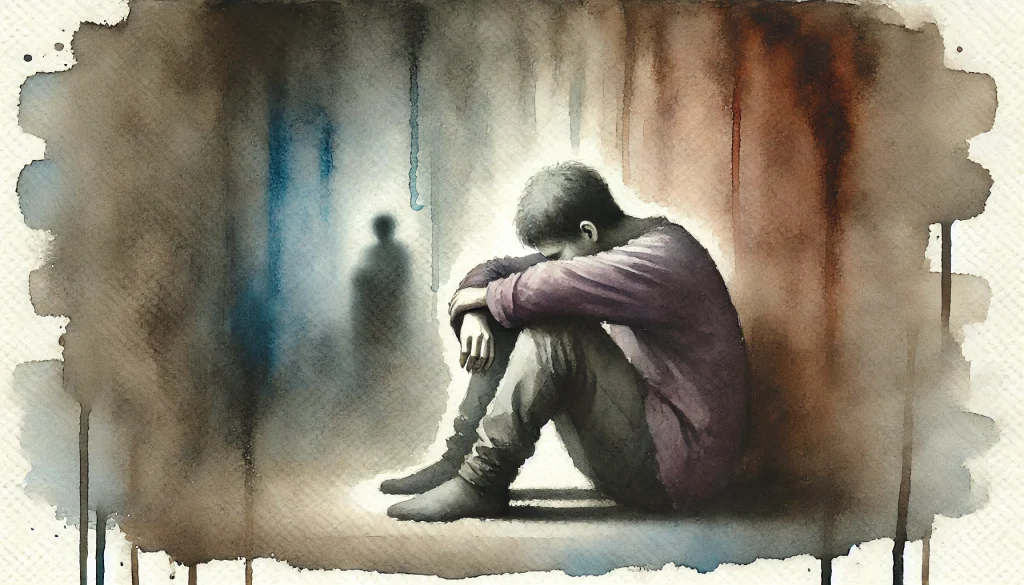
Depression can be a difficult and confusing experience, leaving us with a heavy sense of sadness or emptiness that can be hard to shake. We might wonder, “Why do I feel this way?” Understanding the causes of depression can be the first step toward making sense of our feelings, even if it’s not always easy to pinpoint a single cause.
One thing we need to remember is that depression doesn’t happen because of one single factor. It’s usually a mix of different things that come together, making us feel the way we do. For some of us, it could be a combination of our genes, the way we were raised, and the experiences we’ve had throughout our lives.
Let’s start with our biology. Some people are more likely to get depressed because of their genetics. If depression runs in our family, we might have a higher chance of experiencing it ourselves. This doesn’t mean that we’re destined to be depressed, but it does mean that we might need to be more mindful of how we take care of our mental health. Our brain chemistry also plays a part. Neurotransmitters, which are chemicals in the brain, help regulate our mood. When these chemicals are out of balance, it can contribute to feelings of depression. It’s like having a car with a low battery; it’s harder to get moving and stay energised.
Life experiences can also play a huge role in how we feel. Traumatic events, like losing a loved one, going through a breakup, or experiencing abuse, can leave deep emotional scars. These experiences can make us feel overwhelmed, helpless, or stuck. Sometimes, even smaller stresses that pile up over time, like financial worries or work pressure, can weigh us down and contribute to depression. We might feel like we’re carrying a heavy load that just keeps getting heavier.
Our environment and the way we’ve been brought up can influence how we cope with challenges. If we grew up in a household where emotions weren’t talked about or were dismissed, we might struggle to express our feelings or ask for help. This can make it harder to deal with difficult emotions when they arise. On the other hand, if we had supportive people around us who taught us healthy ways to manage stress, we might be better equipped to handle tough situations. But even then, depression can still creep in, sometimes without any clear reason.
Another factor to consider is our thought patterns. The way we think about ourselves and the world around us can shape our mood. If we often have negative thoughts, like feeling worthless or believing that things will never get better, these thoughts can feed into our depression. It’s like a loop that keeps playing over and over, making us feel worse each time. We might not even realise we’re doing it, but these thoughts can have a powerful impact on how we feel.
Imagine someone who has always been the kind of person who takes on a lot of responsibility—at work, at home, in relationships. They’re the one people rely on. But over time, the pressure builds up. Maybe they start to feel overwhelmed, but they don’t talk about it because they think they should be able to handle it. They keep pushing through, but their energy starts to drain. They might begin to feel disconnected from the things that used to make them happy, like spending time with friends or pursuing hobbies. Eventually, they might feel like they’re just going through the motions, struggling to get through each day. This person might wonder why they’re feeling so low when nothing dramatic has happened. But all the little stresses, combined with the pressure they’ve put on themselves, have built up, leading to depression.
In some cases, depression can seem to come out of nowhere. We might not be able to point to a specific event or reason. This can be especially confusing and frustrating. But it’s important to remember that just because we can’t see the cause, doesn’t mean our feelings aren’t valid. Depression is a complex condition, and sometimes the reasons are hidden beneath the surface, in our biology, our past experiences, or even the way we’ve learned to cope with life’s challenges. We don’t have to have all the answers to understand that depression is real and that it’s okay to feel this way. By being aware of the different factors that can contribute to depression, we can start to make sense of our feelings and recognise that we’re not alone in this experience. There’s no quick fix, and it’s not something we can just snap out of. But understanding what might be causing our depression can be the first step toward finding the support we need.
If you or someone you love is struggling with depression, you don’t have to go through it alone. At My Practice Counselling Melbourne, Jonathan Riley and our team are here to help. Reach out today to start your journey toward a healthier, happier life. Contact us now to book an appointment.